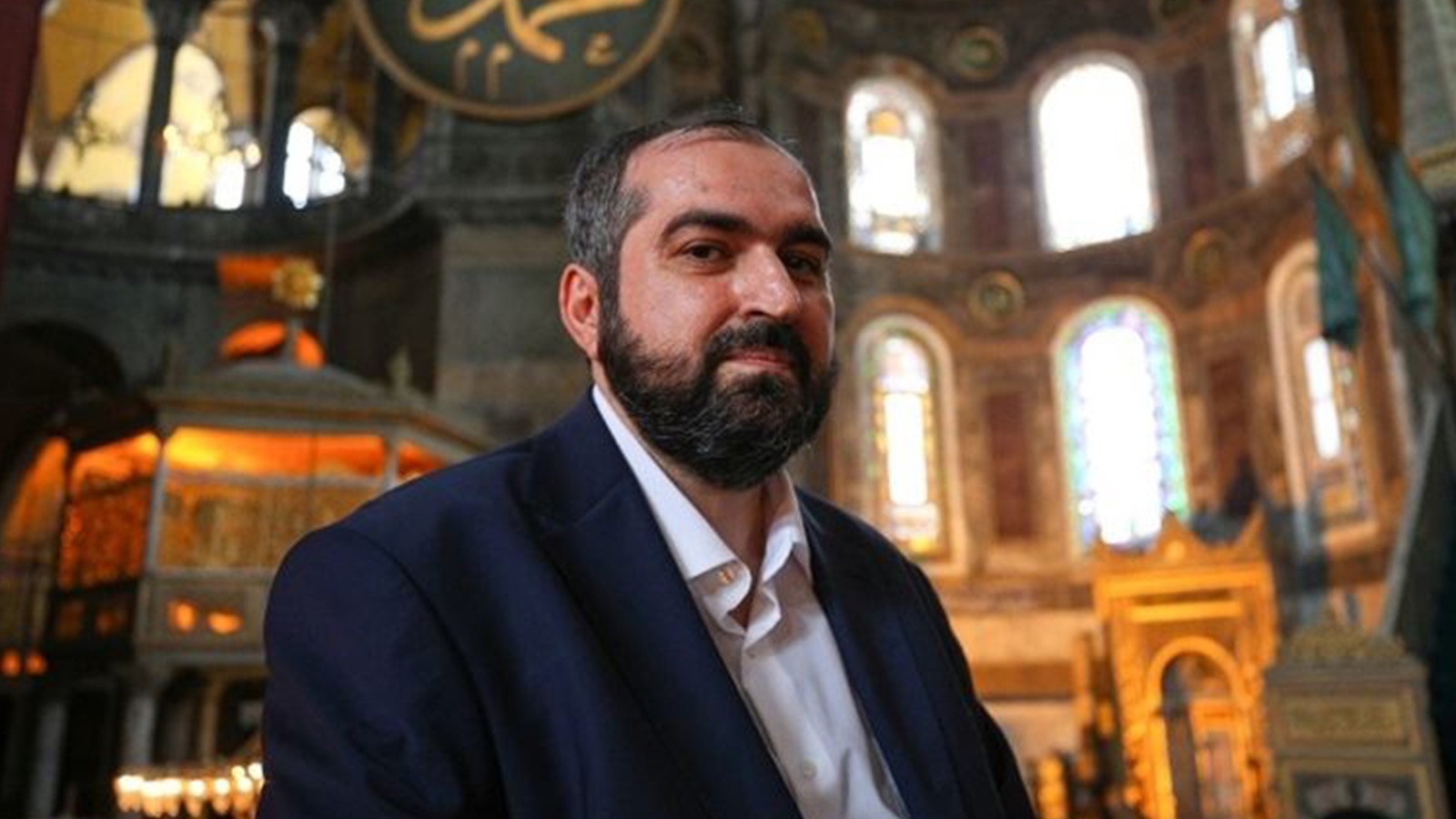Professor Mehmet Boynukalın, the chief imam of the Hagia Sophia mosque who has recently made the headlines with controversial remarks on such topics as secularism, femicide and interest rates, on Thursday announced his resignation in a statement posted on social media.
“Two days ago, I requested to be excused from my job as chief imam of Hagia Sophia to be able to devote more time to my academic/scientific studies,” he tweeted, eight-and-a-half months after he was named to the post.
Boynukalın added that another reason for his resignation was to prevent “deliriums such as ‘The imam of Hagia Sophia is talking about this, so, why shouldn’t we?’ regarding a well-known statement against the will of the nation.”
He was referring to a statement from 104 retired admirals that was released on April 4 and criticized a canal project in İstanbul as well as a debate over the possibility of Turkey’s withdrawal from the Montreux Convention.
“Is the imam of Hagia Sophia supposed to comment on that as well?” said Muharrem İnce, a former presidential candidate from the main opposition Republican People’s Party (CHP), arguing that it was normal for retired military admirals to comment on the issue, contradicting President Recep Tayyip Erdoğan, who accused them of “hinting at a political coup.”
Boynukalın came to public attention back in February when he said the principle of secularism should be eliminated in a new constitution to be drafted by Turkey’s Justice and Development Party (AKP) government and that Islam should be set as the religion of Turkey.
“There was no secularism in the constitutions of 1921 and 1924. The state’s religion was Islam. The republic should return to its factory settings,” he said in a tweet posted on Feb. 10, under the hashtag #AnayasadaİslamOlsun (Let there be Islam in the Constitution).
His remarks on femicides in Turkey in a Women’s Day message he shared on March 8 also sparked backlash from critics and on social media.
“A murder is a murder, regardless of the gender. … The constant emphasis on ‘femicides’ is a slogan-geared media propaganda tool that aims to turn women against men,” Boynukalın argued in a tweet.
Following the controversial remarks, AKP deputy Özlem Zengin responded to Boynukalın in televised remarks, saying: “The weight on politics is heavy enough. … I think everyone should do their own job.”
After Erdoğan fired Turkish Central Bank Governor Naci Ağbal for hiking interest rates to combat inflation, Boynukalın commented in late March that it was “an Islamic requirement” to reduce and then entirely eliminate interest rates and that Muslims must wage war against usury.
AKP group deputy chair Bülent Turan warned Boynukalın following his comment about interest rates, saying that it was “upsetting everyone who paid a price for the conversion of Hagia Sophia” that he was involved in polemics casting a shadow over his role at the newly converted mosque.
Despite international outrage, Hagia Sophia, which served as a church for 916 years until the conquest of İstanbul, and a mosque from 1453 to 1934 – nearly half a millennium – was converted into a mosque from a museum last summer, after a Turkish court annulled a 1934 Cabinet decree that had turned it into a museum.


